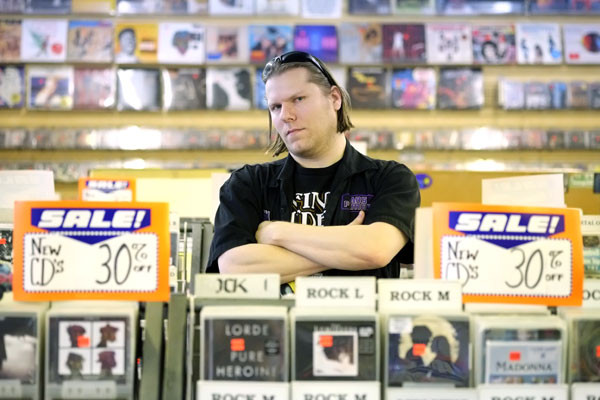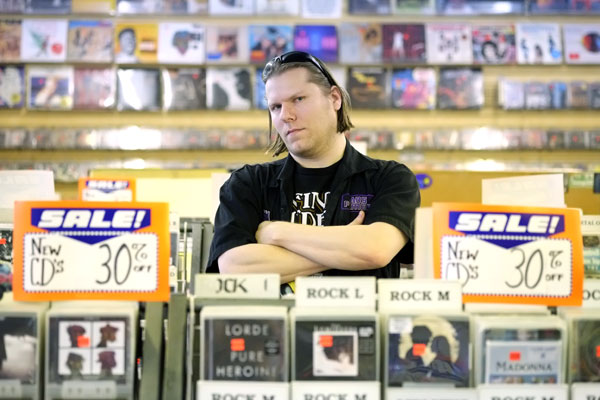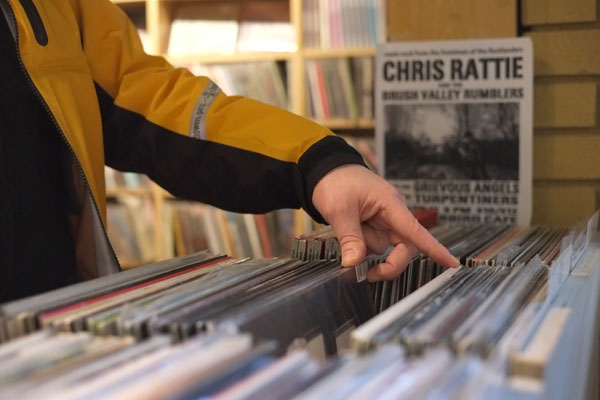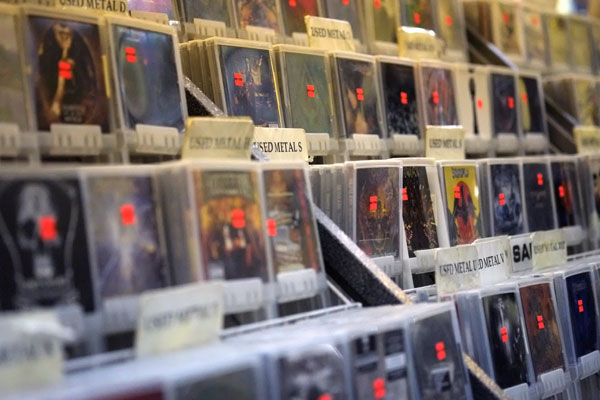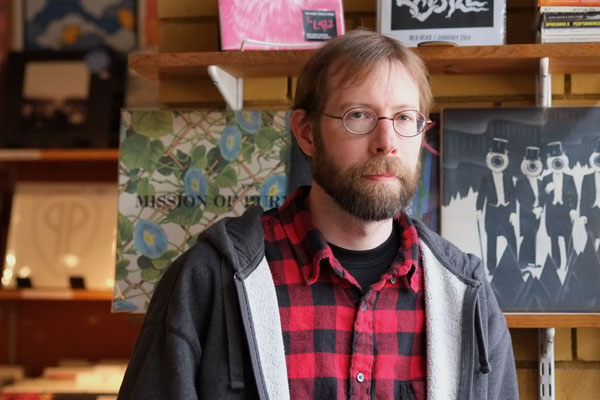This Saturday, April 19, will mark the eighth incarnation of the internationally celebrated event, Record Store Day (RSD). Pittsburgh alone has eleven stores participating. According to the official website, this event “is a day for the people who make up the world of the record store — the staff, the customers and the artists — to come together and celebrate the unique culture of a record store and the special role these independently owned stores play in their communities.”
What it's all about
The mechanics of RSD involve labels, both major and independent, readying a slate of limited run releases specifically designed to be sold on the day itself. This music is then made available to independently owned record stores who can benefit from the demand specialty releases create. It's similar to the model used by the daily deal services Groupon and Living Social, or business district events in Pittsburgh like Lawrenceville's Joy of Cookies Cookie Tour — the hope is to drive new business to small retailers by providing consumers with an incentive.
In the case of RSD, the size, scope and public understanding of the event has grown immensely over the past eight years. A huge array of artists participate, along with a vast network of brick and mortar record shops on both sides of the Atlantic. With a ballooning release slate of 400 records, RSD can officially count itself an institution.
The holiday's prominence has coincided with the steady rise of vinyl sales over the past 20 years, culminating in a sharp spike in 2007 that shows no sign of slowing. Over 6 million records were sold in 2013, a 32 percent increase over 2012, providing the highest number of sales since Nielsen Soundscan, the service tracking sales of music products, was created in 1991. That 6 million is just 2 percent of overall music sales, but 60 percent of vinyl record sales are done in independently owned record stores.
These factors should lead to increased business for record store owners in a tough economic climate, but the reality is far from simple. In America and abroad, criticisms of RSD are mounting, with some claiming the hysteria culture it creates — along with the unwieldy apparatus of the event itself — is forcing small record labels and stores to keep up or risk missing out on what could be their biggest sales day of the year.
Record Store Day in the 'Burgh
For Pittsburgh, the effect of RSD is particularly relevant because the city has one of the healthiest independent record store communities in the country. Creative, dedicated owners have cultivated devoted clienteles that keep their sales steady on a yearly basis. If you're a serious vinyl collector, you could do a lot worse than spending a day scouring through LPs at Jerry’s Records in Squirrel Hill, Bloomfield’s Sound Cat Records, The Strip District’s Eide’s Entertainment, Lawrenceville’s 720 Music, Clothing, and Café and Polish Hill’s Mind Cure Records.
“I get excited for RSD, as a fan of music and as a retailer,” says Andrew Burger, manager of 720 Music, Clothing and Café. “I think it’s been instrumental in raising awareness of vinyl music and bringing new people into record shops. The discerning hunter can find some great pieces, created by music lovers to share with other music lovers.”
“We set records for the store here on [RSD] last year,” adds Jim Semonik, Eide's Entertainment music manager. “I hope it continues to grow, but there is a point where I feel the record companies might be getting a little gluttonous with the amount of titles. Not every indie store can afford to bring in everything. This event is about the indie record store surviving.”
For Pittsburgh record store owners, RSD represents both a celebration of their work and an increasingly shaky proposition that's almost impossible to ignore.
“From the beginning, [RSD] was an opportunity to try and promote record stores,” says Mike Seamans, owner of Punk/Hardcore focused Mind Cure Records in Polish Hill. “It’s been fascinating watching it evolve from people asking, 'What is this?' to becoming a lot of people’s focus throughout the year. RSD is something people talk about all year long. Even before I had my own shop, I wasn’t particularly interested in a lot of the stuff that was going to be released, I just thought the whole idea was cool.”
Seamans in particular has scaled back his purchase of inventory from the RSD release slate. Instead, he offers special 7″ and 12″ vinyl (along with cassettes) featuring local acts, and re-issues from Pittsburgh's punk history from his own label, also named Mind Cure Records.
A Risky Proposition
The reality of RSD is that even when owners put in requests from the record release list, they have no idea what they will get in-store until their shipment actually arrives about a day or two before the event itself. This puts certain high demand releases at an even greater premium, creating scalping markets for collectors — a lose-lose for both storeowners and consumers.
“It's sort of become this whole entity that is bigger than record stores themselves,” says Seamans.
“It’s certainly our biggest sales day hands down. We will have lines out the door and people lining up before the shop opens,” says Kris Collins, owner of Desolation Row Records, which is nestled inside of Caliban Books on South Craig Street in Oakland. The size of his inventory is smaller than most shops in Pittsburgh, but he still sees the effect of record collectors flipping RSD releases almost immediately after they are sold.
“To my mind, Record Store Day been taken over by the collector aspect of it, which happened pretty quickly,” says Collins. “I love seeing kids come in and find a record and get it. I hate seeing it on Ebay the next day, or even hours later. It’s really antithetical to the spirit of getting people out and into record stores.”
For the owner of Sound Cat Records in Bloomfield, Karl Hendricks (also former leader of Pittsburgh indie rock legends and Merge signees The Karl Hendricks Trio), in order to keep up with the demand created by growing vinyl sales and the massive list of RSD releases, he’s ordering more than half of the records available, somewhere around 200 total. Like many other record stores, Sound Cat works on slim margins to begin with, relying on a small set of devoted patrons to stay in the black.
“It’s a huge investment,” says Hendricks. “I don’t want to sound dramatic, because the past few years [it has] worked out, but basically you have to put your business on the line every year. You’re bringing in a month's worth of stock for one day. If it works, these are releases that will be here for half an hour. In the one percent chance it doesn’t work out, it would be catastrophic.”
Hendricks doesn’t stray too far outside his regular buying philosophy for RSD — “It’s just a very condensed, frantic version of what we usually carry,” he explains — acknowledging that the event has definitely gotten people of all ages excited about vinyl, which constitutes about 60 percent of his sales. In the end, while the apparatus of RSD has gotten a little too big, highlighting a need for a better support system for smaller businesses and tighter regulation of the secondary markets, the event's philosophy remains intact: Let record stores sell music to music fans.
“I don’t really like that [RSD] creates a hysteria,” adds Hendricks. “I just want to sell records, I don’t want to make it more complicated than it is. I’m just hoping people will have fun.”
Support your local record store on Record Store Day and every day. Visit recordstoreday.com for the full list of special releases.
Check out your favorite Pittsburgh record store to see what they are doing for Record Store Day:
720 Music Clothing and Cafe, Sound Cat Records, Desolation Row Records, Mind Cure Records, Jerry's Records, Eide's Entertainment, The Exchange, Dave's Music Mine, Attic Record Store, Son of Stedefords.
Photos by Brian Cohen.
